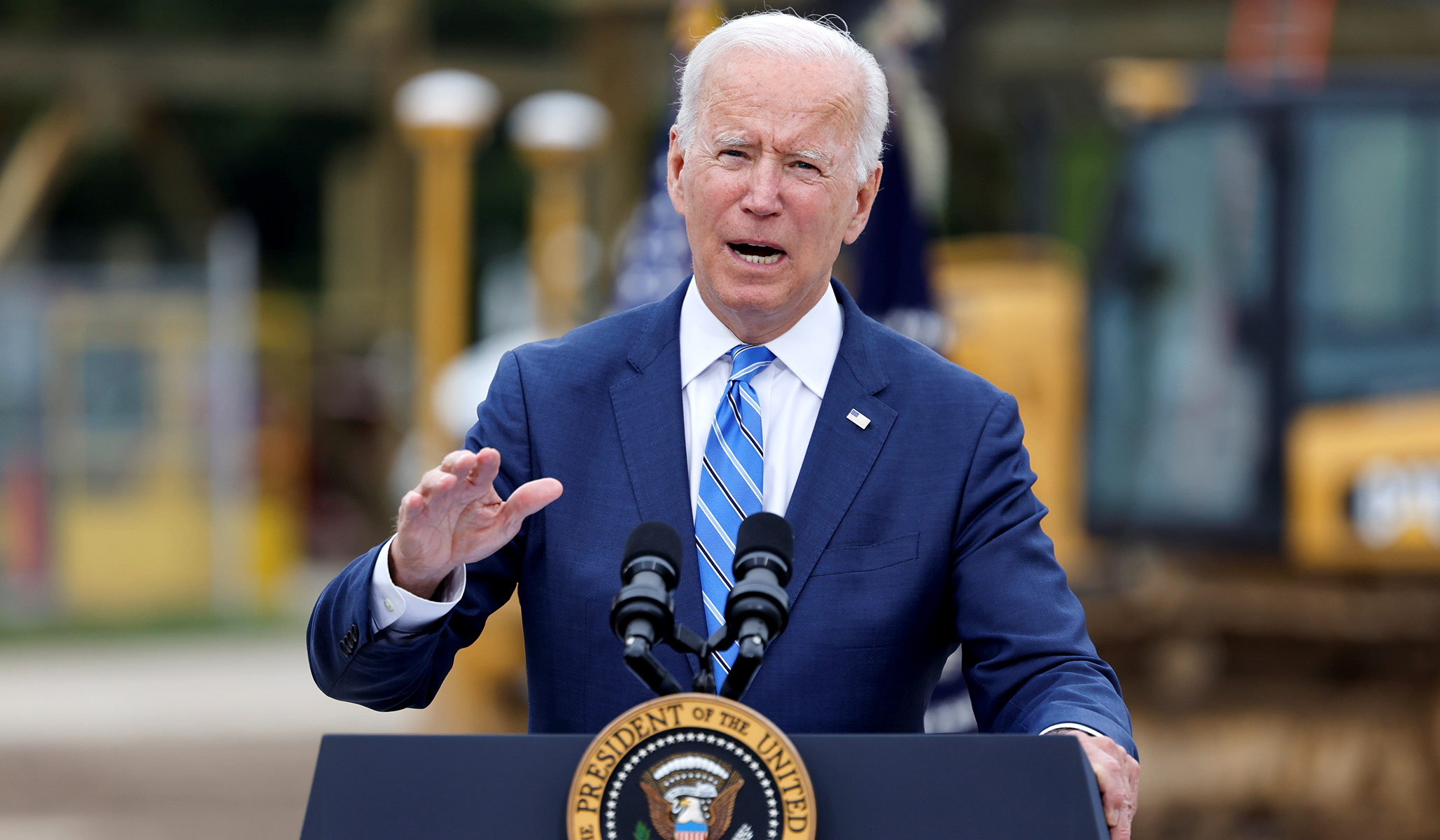President Biden was asked Tuesday night if he’d sign a reconciliation bill that includes the Hyde amendment, a measure that prohibits federal funding of abortion except in rare circumstances. “I want to get the bill passed,” Biden replied. “I’d sign it either way.”
West Virginia Democratic senator Joe Manchin said on Monday that the “Hyde amendment is a red line” for him, and last week Manchin told National Review the measure “has to be” included in the bill.
Congresswoman Pramila Jayapal, however, has threatened to vote against the bill if it includes the Hyde amendment:
Jayapal elaborated on her views during a podcast hosted by former Obama administration officials. “The Hyde amendment is the law,” Jayapal said. “I would like to repeal it, but I’m not suggesting we put the repeal into this [reconciliation] bill. What I am saying is that the Hyde amendment is already law, so why would we add it into the bill as a political statement when it’s already the law?”
Jayapal seems to be arguing that the Hyde amendment is a permanent law that applies to all federal funds. But that is not true.
In the context of the traditional Medicaid program, the Hyde amendment is a budget rider attached each year to the Labor-HHS appropriations bill.
What’s not quite clear is whether Jayapal honestly misunderstands how the Hyde amendment works or if she is deliberately misrepresenting how the Hyde amendment works. Evidence for the latter is this report in Esquire on Manchin’s Hyde comments: “I later dropped this tidbit to a Democratic member of Congress who reacted as though I’d handed over a copperhead. This is indisputably a landmine in the ongoing negotiations, as the progressive caucus has made eliminating the Hyde Amendment one of the primary ancillary policy goals of the reconciliation bill.”
Whether or not Jayapal made an honest mistake, it is indisputably true that the current iteration of the House Democrats’ $3.5 trillion reconciliation bill would fund abortion in several different ways.
Congressional Democrats have two paths to applying the Hyde amendment to the reconciliation bill:
Option 1: Senate Democrats could explicitly include the Hyde amendment in the reconciliation bill. This has been done before. The Senate parliamentarian has typically held that the Hyde amendment is subject to 60 votes in reconciliation, but the 60-vote threshold is required only if a senator raises a point of order. In 1997, when Congress created the Children’s Health Insurance Program through a reconciliation bill, Democratic senator Patty Murray’s point of order was withdrawn, and the Hyde amendment was permanently attached to the program.
Option 2: Senate Democrats could route all relevant funds through funding streams to which the Hyde amendment will be applied. For example, rather than creating a new “direct appropriation” for the new Medicaid-like program, the funding would come from the Labor-HHS appropriations bill to which the Hyde amendment will apply. If any relevant funds in the reconciliation bill can’t be rerouted through Hyde-protected programs or appropriations bills, they could be stripped out and taken up during the normal appropriations process.
